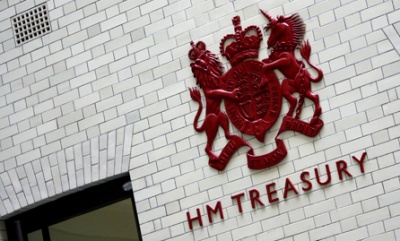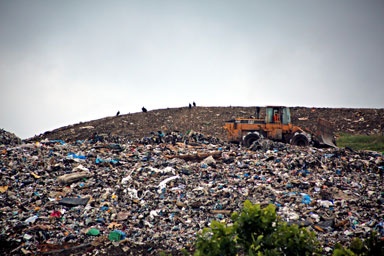Treasury ‘riding roughshod’ over departments’ environmental schemes – EAC
Parliament’s green watchdog, the Environmental Audit Committee (EAC), is calling for the Treasury to ‘green-check’ all of its decisions after an investigation into its approach found that it puts short-term priorities over long-term sustainability – potentially increasing costs to the economy in the future, and harming investor confidence.
 As part of the investigation, the EAC commissioned the National Audit Office to audit the Treasury’s decision-making process in last year’s Spending Review to establish whether the process led to well-informed decision-making in relation to environmental protection and sustainable development.
As part of the investigation, the EAC commissioned the National Audit Office to audit the Treasury’s decision-making process in last year’s Spending Review to establish whether the process led to well-informed decision-making in relation to environmental protection and sustainable development.
The Treasury, through its control over government spending, taxation policy and regulation, has a definite impact on ensuring the UK meets its environmental obligations. However, the EAC’s report found that the department is failing to adequately factor in long-term environmental risks into its decisions and is not doing enough to encourage departments to work together on environmental issues – such as air quality, decarbonisation, energy and resource efficiency.
In its report, the EAC noted: ‘We heard multiple examples of where the Treasury has ridden roughshod over other departments’ objectives, changing and cancelling long-established environmental policies and projects at short notice with little or no consultation with relevant businesses and industries. These decisions caused “shock” and “uproar” among sectors affected, with some businesses describing them as “devastating”. All these changes, taken together, have had a damaging effect on investor confidence.’
Landfill tax a ‘blunt instrument’
Part of the EAC’s investigation looked at the effectiveness of the landfill tax. The Treasury controls the tax, which was introduced in 1996 and is designed to divert waste from landfill.
Most waste businesses and organisations agreed that, through the landfill tax, the Treasury has played an important role in helping the UK to meet its waste targets and divert waste from landfill to other treatment methods such as recycling or energy from waste.
Providing written evidence to the inquiry, waste management company Veolia stated that HM Treasury policy has played a positive role towards meeting landfill diversion targets through the introduction of the landfill tax. However, the company also emphasised that the Treasury should be ‘conscious of the sunset of landfills’ and that there should be a ‘clear long-term direction of travel for landfill tax, beyond the next couple of years, to allow for adequate future planning and to make the necessary arrangements for closure and aftercare’.
The EAC investigation noted that the recycling rate for England has recently dipped for the first time since records began in the 1990s, and that the tax has no effect on what happens to the waste once it has been diverted from landfill. In its evidence, environmental think tank Green Alliance said that ‘the flat-lining of recycling rates over the last few years suggests the landfill tax has reached the limits of its impact on recycling rates’. Indeed, Waste Minister Therese Coffey questioned whether the landfill tax was sufficient to drive change at this year’s Conservative Party Conference.

It concluded that landfill tax is a ‘blunt instrument’ and is not sufficiently nuanced to drive continued increases in recycling rates. It said the Treasury should set out in response its future plans for the landfill tax and how it plans to support further investment in the waste and recycling sectors in the future.
Ways the Treasury must improve its performance
The report found that the technical and political frameworks the Treasury uses to support its choices consistently favour short-term priorities over long-term sustainability. Comparatively expensive, glamorous low-carbon technologies (e.g. wind, wave, tidal and nuclear) have received more attention than cheaper alternatives (e.g. onshore wind and energy efficiency), which might represent better value for money.
The EAC found that this is in part because the frameworks do not take adequate account of future environmental costs and benefits. As a result, a number of the Treasury’s decisions could lead to higher costs to the economy in the future.
It concluded that the Treasury needs to do more to factor these into its decision-making processes, so that decisions are subject to a systematic ‘green-check’. It must set out concrete steps on how it will incorporate new evidence on natural capital into its ‘Green Book’ appraisal process and its reporting and accounting mechanisms.
‘Wake up call’ to the Treasury
The EAC report sets out ways the Treasury needs to improve its performance and provide greater leadership on environmental sustainability:
- ensure Spending Reviews provide strong incentives for collaboration between departments on environmental matters;
- incorporate new evidence on long-term environmental risks and benefits into its frameworks for assessing the value for money of government interventions;
- increase transparency and accountability by providing publically-available justifications for its decisions; and
- work with other departments whose policies affect the environment to ensure the government’s new industrial strategies promote sustainability.
EAC Chair Mary Creagh said: “On the carbon capture and storage competition and zero carbon homes we saw the Treasury riding roughshod over departments, cancelling long-established environmental programmes at short notice with no consultation, costing businesses and the taxpayer tens of millions of pounds. With a week to go until the next Autumn Statement, we hope our inquiry will be a wake-up call to the Treasury.”
The EAC report can be downloaded from the committee’s website.







